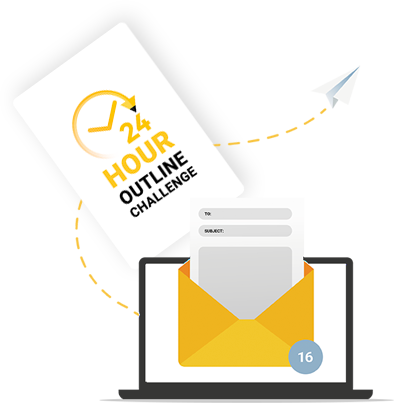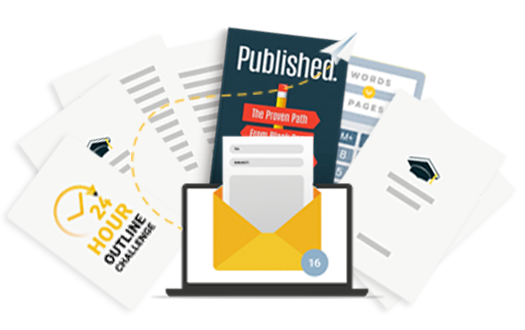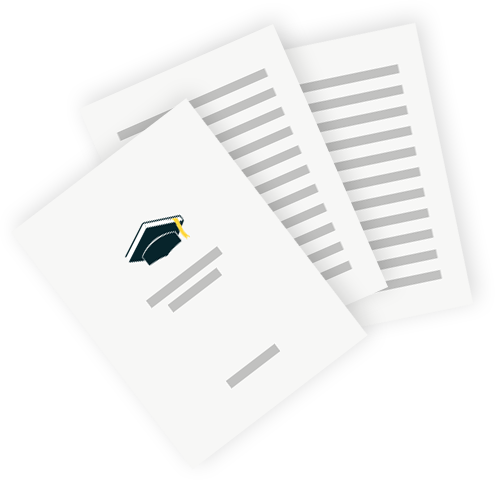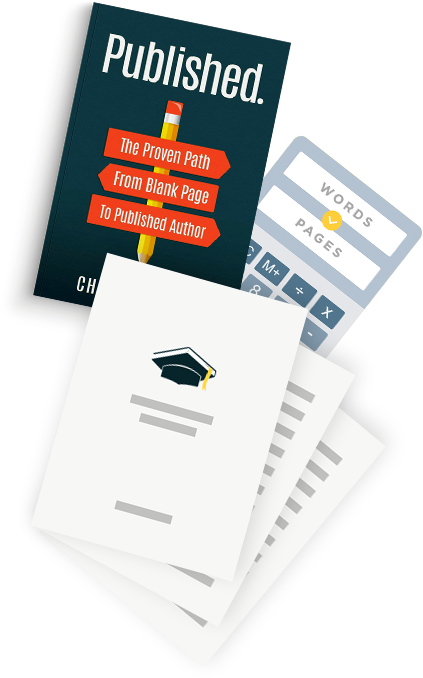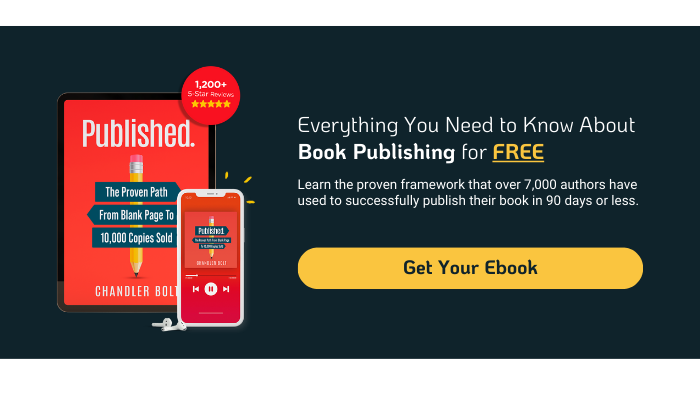Think your rough draft is ready for editing but just not sure? Getting an early critique is a key step in the editing process, and critique partners are a great way to get that done!
Say you’re writing a novel, and you’re just not sure whether it’s any good.
You have a close friend or family member take a look at your finished draft, or maybe you had someone read the first draft as you wrote it to cheer you on and offer their thoughts. But you’re finding that despite this, you’re still looking for a little more criticism and support before heading over to an editor or starting beta rounds.
What you need is called a critique partner, and good news! We’re going to show you what they can do for you, where you can find one, and how to be a great critique partner yourself.
This guide to working with a critique partner covers:
- What is a critique partner?
- What to expect from a critique partner
- How to find someone to critique your writing
- How to choose a critique partner
What is a critique partner?
First things first: what’s a critique partner?
In simple terms, a critique partner is another writer who offers you feedback on your work in exchange for feedback on theirs.
Ideally, you’ll find a critique partner with whom you can grow and share multiple projects with, but you also might find a critique partner for one specific project, like a novel or short story. You might have one critique partner, or several, depending on your needs.
Have you ever been a part of a writing workshop, where everyone offers feedback on one another’s work? This is a great example of a critique partnership. While a workshop can be a fun way to go about it, plenty of critique partnerships are one on one and entirely online.
Alpha reader vs critique partner
Alpha readers are readers who take a look at the very first draft of your novel. This is often the most unpolished, rough version, still full of ‘insert scene here’ bits and things like that. These readers aren’t necessarily writers, though they might be, and an alpha reader isn’t expecting you to read their work because they’re reading yours.
You might be looking for a critique partner to work with you on your first draft—your needs may vary, and you can enlist the help of a critique partner at whichever stage of the writing process you need.
The key differences between alpha readers and critique partners are that alpha readers are specifically reading your first draft (critique partners can be recruited anytime), and critique partners will expect you to read and review their work, too.
Beta reader vs critique partner
Beta readers are readers recruited to take a look at a more polished, edited version of your draft. Ideally, you’ll recruit a pool of beta readers and assign them your work in sections. After they complete each section, they’ll answer a set of questions. You’ll have prepared these questions in advance, and they’ll cover areas on which you want feedback.
What are the key differences between a beta reader and a critique partner? A beta reader will be recruited after you’ve done revisions (critique partners can be recruited anytime), and they often won’t be writers themselves (critique partners always are).
What to expect from a critique partner
Now that you know what a critique partner is, let’s talk about what you should expect out of your critique partnership. This is how a critique partner should, ideally, help you, and how you should ideally help your critique partner!
A writer’s perspective
Perhaps most importantly, a critique partner offers a writer’s perspective. Beta readers and alpha readers are great for getting feedback from readers, but if you’re looking for critique, you probably want the opinion of someone who does what you do.
If you were an electrician having a problem at your place of work, for example, who would you ask for help? You’d probably ask a fellow electrician who knows as much or slightly more than you. You probably would not ask some random person who happened to be passing on the street—you’d want advice from someone who definitely knows what you’re talking about.
Basically, critique partners know what you’re going through. They’re someone who can talk craft and offer tangible solutions to problems—it can be fun to brainstorm solutions with critique partners, especially if you find someone you really click with.
Specific feedback
A critique partner should also offer specific feedback. While a beta reader might say something like ‘the ending didn’t really make sense,’ a critique partner should get a little more involved. They should not only be letting you know which areas of the story feel like they could use some improvement, but they should also be able to tell you why they feel that way.
Instead of “the ending didn’t really make sense,” for example, a critique partner might say something more like “Maxine seemed to be working to overcome her struggles at work, but at the end, these issues were unresolved, and instead there was a big scene with her brother. It didn’t feel like the story was leading up to that.”
In the latter example, notice how the critique partner explains why the ending doesn’t make sense to them.
Encouragement and respect
A critique partner shouldn’t be afraid to tell you when you’ve got a weak spot in your story, but they shouldn’t be cruel, either. It’s equally important to know what you’re doing well, and a good critique partner will find those spots and mention them. Again, specifically.
If your critique partner is only offering criticism and can’t identify anything in your manuscript that they like (or if you’re having the same problem with your critique partner’s manuscript), you may need to find someone else. It doesn’t help to have someone only point out your flaws, and missing one another’s strengths is just as much of a failing as missing one another’s mistakes.
How to find a critique partner
Thanks to the internet, it’s never been easier to find a critique partner. Here are just a few places you can get started in your search.
Social media
Places like Twitter, Tumblr, and Instagram are teeming with writers looking to connect. It’s free to make an account, and you’ll find a bazillion writers looking to make some writer friends. Check the popular writer hashtags for your respective platform and see if anyone’s looking for a critique partner. Sometimes you might find Facebook groups or specific hashtags dedicated to finding critique partners, which makes it easy.
A quick note: if you go on social media and ask a stranger to be your critique partner out of the blue, there’s a chance they might say no, and that’s okay. If you’re asking someone you don’t know or haven’t spoken to before, make sure to be respectful and polite about it, just like if you were asking someone in person.
Local writing groups
You can also check your local writing groups. Your local library might host a writing workshop, or maybe your school or university has a class or club dedicated to creative writing. These places are great not only for making some in-person pals, but also for exchanging work with a variety of different people!
How to choose the right critique partner
Finding the right critique partner can be pretty challenging. There are a ton of factors that can determine whether someone’s a good fit for you, especially if you’re looking for a long-term critique partnership. Here are a few things to keep in mind while you’re looking for new critique partners.
Get to know each other
First, make sure you and your critique partner get along. You don’t have to be best friends, but you’re going to be critiquing each other’s writing, and that can be a pretty personal business. You don’t have to wine and dine them or anything, but having a little chat to see if you like this person can keep you from signing on with somebody you don’t like or don’t really mesh with.
Think about it like this: ideally, you’ll have a critique partner you can brainstorm with, hype up, and feel excited to work with. To do that, you’ll need to at least be friendly with each other.
Compare projects
It’s also important to make sure that your projects are in a similar ballpark. If you’re writing a contemporary romance, for example, it might not help to have a critique partner who doesn’t like romance and only writes military history nonfiction, which you hate. You want to be critiquing work that you’re familiar with and generally enjoy, and you want your critique partner to be in the same position.
Why? Well, it’s as easy as this: you’re not going to be very helpful critiquing a genre you don’t like or don’t read, and the same goes for your critique partner. It doesn’t have to be an exact match—maybe you’re writing a contemporary romance and they’re writing a historical romance, for example—but you should at least be in the same wheelhouse.
You also want to be at roughly the same skill level. A brand-new writer and a seasoned novelist probably won’t be super useful to one another. These pairings can also get frustrating and disheartening for both parties involved.
Try a sample swap before you commit
A sample swap can help you avoid tons of awkwardness down the line. You might meet someone, get along with them, and think they might make a good critique partner, but not have actually read any of their work yet (and they may not have read yours). You definitely don’t want to get started and find out that actually, you’re not interested in reading their work, or that you don’t care for their style of feedback.
Before you sign up for a long-term project, try a sample swap. Exchange a chapter or a few thousand words and see how it goes. Every relationship in the world requires some communication and adjustment along the way, so it’s fine if things aren’t perfect. However, if the sample swap signals that you’re really not a match for one another, you may need to find someone else.
Decide on a schedule
This might sound obvious, but it’s honestly a life-saver. Decide on a schedule with your critique partner before you get started, and do your best to stick to it.
This is one of the reasons in-person workshops can be so nice—they’re often scheduled at a set time, so everyone knows when they’re expected to have read and reviewed the work of their peers.
Your schedule with your critique partner will depend on your schedules and needs. Maybe you’re both busy parents with other jobs, so you’ll only be able to do a chapter a month. That’s totally fine! Just make sure you set your expectations clearly, and if the schedule isn’t working, don’t be afraid to tweak and adjust it so that you’re able to respect one another’s time.
Critique partners are a great step before finalizing your draft and submitting to an editor for review. If you’re getting close to the editing step, make sure to grab a copy of our editing checklist, below!
